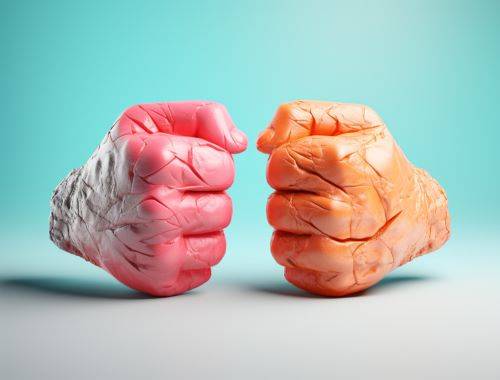By embracing the challenges posed by AI and leveraging its potential as a catalyst for intellectual growth and innovation, we stand poised to shape a future where critical thinking remains not just relevant but indispensable in our quest for progress and understanding. Nina Conseil opines that we must seize this opportunity with vigilance, creativity, and an unwavering dedication to the cultivation of our most precious cognitive asset: our ability to think critically.
In an era dominated by rapid technological advancement and the ever-expanding capabilities of artificial intelligence (AI), questions surrounding the role of critical thinking in our society have become increasingly pertinent.
Successful AI integration should complement, not replace, these human qualities. Human intuition guides AI for qualitative understanding, and empathy ensures compassionate and ethical decision-making.
Elon Musk, a prominent figure in the tech industry, has famously labeled AI as the “biggest existential threat” and has been calling for regulation of AI technology and its application, as well as highlighting the potential erosion of human critical thinking skills. Are we witnessing the relegation of this fundamental cognitive ability to the annals of history as it is overshadowed by the seemingly inexorable march of automation and algorithmic decision-making?
Or, conversely, does the proliferation of AI present a unique opportunity to cultivate and enhance our critical thinking capacities in ways previously unimagined?
Hurdle or springboard to critical thinking?
On one hand, AI technologies have the potential to enhance critical thinking by providing quick access to vast amounts of information, aiding in data analysis, and automating routine tasks. This can free up human cognitive resources to focus on higher-order thinking, problem-solving, and creative aspects of decision-making.

However, there are concerns about overreliance on AI, which may lead to a dependency on automated decision-making processes. So, it is essential for individuals to maintain and develop their critical thinking skills in tandem with AI advancements.
Critical thinking involves the ability to analyze information, evaluate its reliability and make reasoned judgments. This is echoed by Tomas Matl of Colours of Data, a small European boutique consultancy. When talking with me he had mentioned that “While AI can assist in processing information, my team plays a crucial role in interpreting results, considering ethical implications, and adapting to novel situations.”

Tomas Matl, Colours of Data
“In essence, the impact of AI on critical thinking depends on how individuals and societies integrate these technologies into their decision-making processes.” It is an opportunity for a symbiotic relationship where AI augments human capabilities, but individuals must remain actively engaged in refining and applying critical thinking skills to ensure thoughtful, ethical, and context-aware decision-making.
Don’t throw out human traits just yet
While AI demonstrates remarkable capabilities, human intuition and empathy remain crucial aspects of decision-making and interpersonal interactions which are challenging for AI to fully replicate.
Human intuition rapidly comprehends situations, drawing from experience, emotions, and tacit knowledge. This nuanced decision-making aspect relies on a deep understanding of context and a holistic view, areas where AI may struggle amidst the subtleties involved.
Empathy, a distinct human trait, plays a vital role in healthcare, customer service, and relationships. Although AI can simulate responses using patterns and algorithms, it lacks genuine emotional understanding.
According to Tomas, “Successful AI integration should complement, not replace, these human qualities. Human intuition guides AI for qualitative understanding, and empathy ensures compassionate and ethical decision-making.”
The patterns of AI adoption exhibit both similarities and distinctions compared to previous technologies. The promise of AI often sparks anticipation, triggering a widespread “me too” approach, with organizations eager to join the bandwagon. However, reality reveals that AI integration is not as straightforward as imagined.

The realization is that for AI to truly deliver value, humans must actively contribute creativity, critical thinking, intuition, and empathy. Some clients may experience disillusionment or defensiveness, as the initial excitement gives way to recognizing AI as a tool that augments human capabilities rather than completely replacing them.
Unlocking AI while preserving essence of human thought
In essence, the AI adoption journey follows a familiar trajectory of initial enthusiasm, tempered by the acknowledgment that a harmonious collaboration between humans and AI is essential for optimal outcomes. “We find that success lies in understanding AI as a complement to human skills, not a replacement, achieved through balanced integration,” Tomas said.
In conclusion, the intersection of AI and critical thinking presents a multifaceted landscape rich with both promise and peril. As Elon Musk’s cautionary words echo in our minds, it’s clear that navigating this terrain requires not only technological prowess but also a steadfast commitment to nurturing and preserving the essence of human thought.






